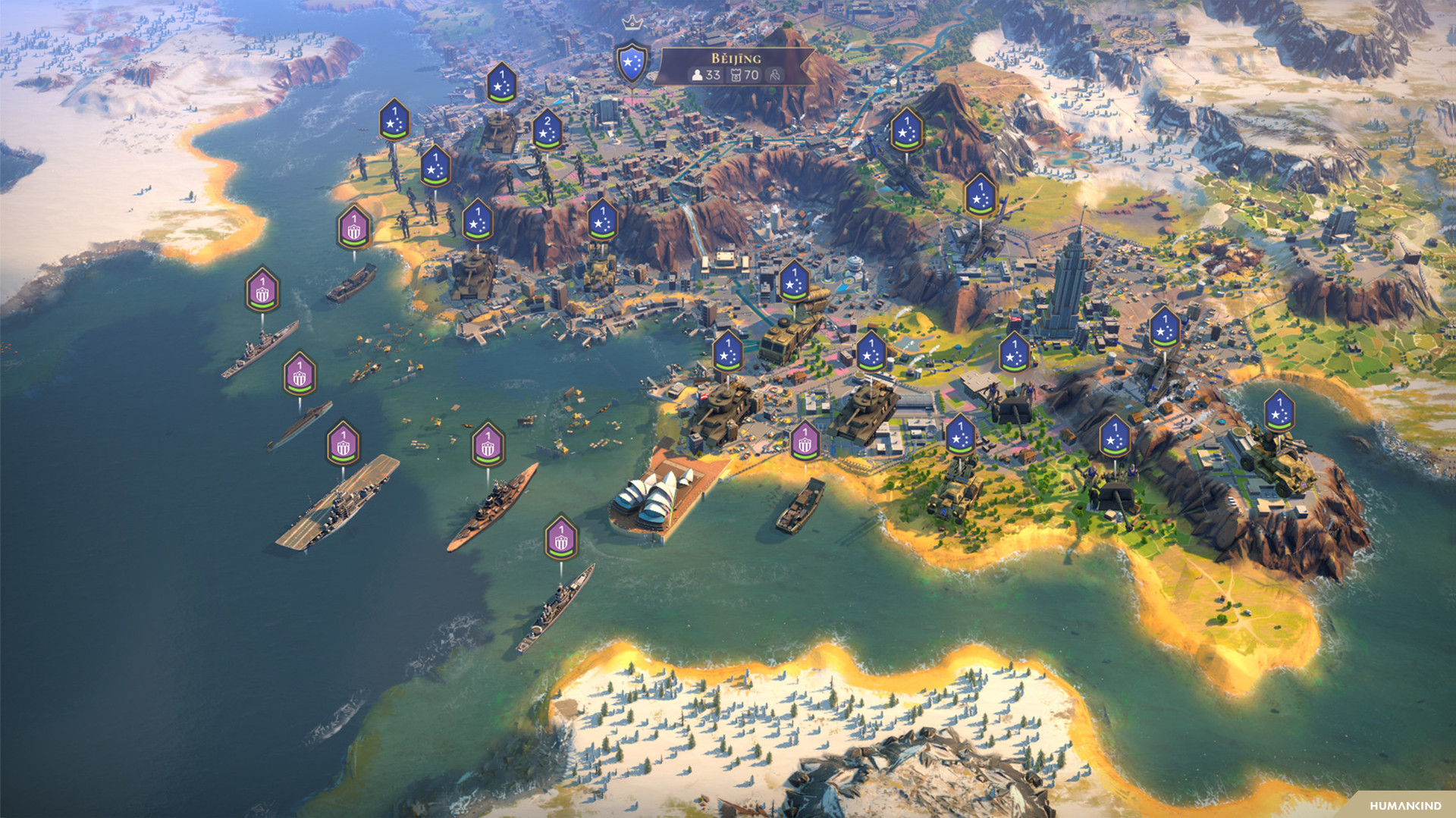

This makes much more sense, as people would naturally lose faith in their leader’s cause for war if it looked like they were on the losing side. The war support meter can deplete when your lands get ransacked and plundered, or if your units are constantly losing in battle. When you’re at war with someone, if your war support meter goes all the way down, you’ll automatically surrender. Whereas in Civ, you would need to absolutely dominate and take over all of an empire’s territories to force them to surrender, Humankind makes use of a war support meter instead. Humankind also implements a couple of other neat changes, such as relations between empires. In Humankind, regardless of what path you’re embarking on, it always contributes to your fame, which is the only determining factor of who wins and loses. This solves a problem in Civ that could be potentially frustrating: nothing feels worse than some other civ sneaking in a culture victory when you were close to a science or religious victory of your own. Unlike in Civilization, where there are multiple types of victories, winning a game of Humankind is determined by your fame score by the end of a game.

There are, of course, benefits to sticking to one culture for the duration of the game, and that’s the fame multiplier. You might choose a more combat-focused culture in the Ancient Era to expand quickly and claim as much territory as you can, then switch to a science or religious-focused culture in the next once the battles are over, and you can focus on your own empire. With Humankind, the ability to switch cultures between each era makes sense. In Civ, you’re forced to pick a culture at the very start of the game and you’re stuck with it until the game ends, but this can be a disadvantage for a few reasons: first, you haven’t even seen the map yet and you don’t know what resources you’re working with, and second, it’s hard to predict the type of victory that would be most efficient for you in that game. This makes sense in theory because cultures can change and shift along with the times. And here’s the kicker: you get to pick a new culture each time you enter a new era. It’s only when you’ve found your roots and made enough progress as a tribe that you’re able to enter the Ancient Era, and that’s when you get to pick a culture to follow for that era. Instead of picking a set civilization to play as for the entire game, you start as a Neolithic tribe that’s just wandering the lands, hunting animals and looking for a place to settle down. Right from the start, though, it’s clear that Humankind is a lot more interested in historical authenticity (not accuracy, mind you) than Civ ever was. You’re exploring a large map made out of hexagonal tiles, you’re establishing outposts that soon become cities, and you’re building districts and researching various technologies to advance your empire and become the greatest civilization humankind has ever known. If you’ve played Civ, Humankind should feel immediately famililar. Sporting a clean UI and a few new mechanics that help set it apart from Civ, Humankind does feel like a breath of fresh air and a worthy evolution of the genre… but it’s not without its missteps. The two are practically synonymous at this point, which is what makes Humankind such an interesting prospect.ĭeveloped by Amplitude, Humankind is, without a doubt, the biggest competitor to Civilization we’ve seen in recent years.
Humankind game review series#
The foundation of that series is so strong that it’s hard to talk about any other game in the genre without making some sort of reference to Civ. The 4X grand strategy genre has long since been dominated by Sid Meier’s Civilization series, and for good reason too.


 0 kommentar(er)
0 kommentar(er)
